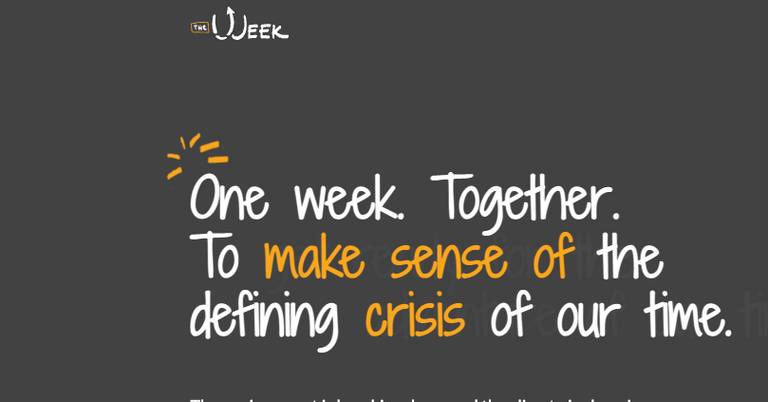At Liip, we no longer need to introduce Frédéric Laloux and his 2014 book Reinventing Organizations. During the transition to self-organisation in 2016 when we introduced Holacracy, the book was both a must-read and a source of inspiration.
But a few years ago, Frédéric Laloux’s focus on reinventing companies shifted and he moved towards a different form of vital reinvention: society taking on environmental challenges.
One week to make sense of the situation and put ideas into action
Frédéric and his wife, Hélène developed a programme called ‘The Week’, which, as its name indicates, takes place over the duration of a week. One week to become fully aware of the environmental challenges we are facing, to understand how societal change happens and to start taking action.
Specifically, ‘The Week’ consists of three sessions in which a group watches a film that will then serve as a basis for discussions. The collective aspect of this activity is crucial as these societal and environmental challenges shouldn't be borne or dealt with alone.
A roller coaster ride of experiences and emotions
The aim is to have a joint experience, and it has to be said that the first session is rather difficult. Even if you are already partially aware of the critical situation we are facing, the first step is giving everyone an insight into the magnitude of the current crises and what is yet to come, with some concrete examples from around the world and some from our own doorstep. This session is rife with emotion, sadness, a feeling of being overwhelmed, even angry, and this is all shared with the group. We cannot help but hit rock bottom during this first step, and it is with this shared knowledge that we can move on.
The history of our civilisation is founded on upheaval, progress and revolution. As experts in the changes that take place in societies, Frédéric and Hélène show to what extent these evolutions start from the ‘bottom up’. Sometimes with individuals, but often as a collective group, which in turn demonstrates how you can change the narrative to change history, with numerous inspiring examples in the fields of agriculture, politics and even energy. Examples of possible changes to move towards having a better world that do not necessarily outweigh the dominant narrative. Not yet, anyway, as a historical perspective shows all too well how there can be a switch in perspective. A new narrative gains traction and disturbs the status quo, rendering the dominant narrative obsolete.
This second session provides the inspiration needed to start on the third session, which is dedicated to promoting action. What can we do by ourselves, and with our families, neighbourhoods and friends. And, of course, with our employers.
‘The Week’ is the ideal supplement to what we are doing in terms of sustainability.
At Liip, we already plan sustainability lunches and regular meetings to discuss sustainability with a film and a meal. ‘The Week’ enables us to go further, not just promoting awareness but also the need to take action. Therefore, we have been using the programme since its inception, even in its prototype phase. We did this to allow Liipers to be able to take part in this experience at work and as a response to wanting to see Liip play a more active role in sustainability.
We first tested it on a group of Liipers in spring 2022. Around 20 colleagues took part in ‘The Week’ across our various offices.
The programme is now an integral part of our training. We have also added a specific additional module dedicated to sustainability at Liip, in addition to what is covered in the other sessions that come before.
‘The Week’ is now available to everyone, and, as you may have guessed, we highly recommend joining the movement on theweek.ooo

